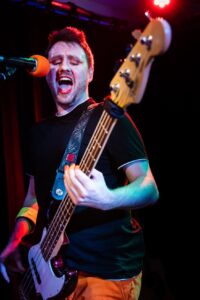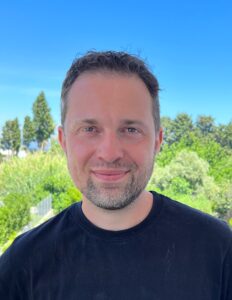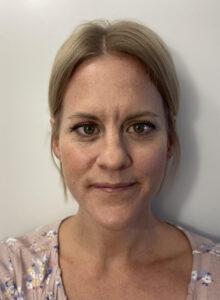We are pleased to announce winners of “Excellence in Biocuration Award” for the year 2023 in two categories:
Early Career Award – Charles Tapley Hoyt, Laboratory of Systems Pharmacology Harvard Medical School, MA, USA
Charlie has been so amazingly busy in such a short amount of time. He is a Research Fellow at Harvard Medical School and the primary curator, developer, and maintainer of several community datasets and databases.These include Bioregistry, which promotes standardization of prefixes, CURIEs, and URIs when used to reference entities/concepts in the life sciences. He contributes to Biomappings, which provides mappings between named biological entities. He created Chemical Roles Graph, which curates mechanistic relations between small molecules and biological processes, pathways, and diseases in an ontological framework. He is a frequent contributor to other curated datasets, and promotes the concept of the Drive-by Curation and of progressive governance models to enable community curation and strengthen project sustainability.
Charlie actively contributes to community efforts; he is an active member of the OBO Foundry ontology community, focusing on promoting standardization of semantics, better curation and coding practices through continuous integration/continuous development and social workflows, promotes more granular attribution and explicit/transparent licensing to better enable reuse.
He contributes to standards development including the SSSOM standard, a simple standard for sharing ontology mappings that includes explicit semantics and provenance, and is a member of Biological Expression Language (BEL), a domain-specific language for representing causal, correlative, and associative relationships between biomedical entities as well as their associated contextual and provenance annotations.
He has mentored a large number of students at the Institute for Algorithms and Scientific Computing (SCAI) and is frequently available to lend support to public projects such as PyBEL and PyKEEN.
Charlie is actively engaged in the Biocuration community and co-chaired the most recent Biocuration 2023 conference in Padova, Italy and participated in the organizing committee of the Virtual Biocuration 2022 Conference. His charisma, enthusiasm and energy are invaluable to our community. His enthusiasm and energy are rare and he deserves to be celebrated.
Advanced Career Award – Nicolas Matentzoglu, Monarch Initiative, Semanticly, Greece
Nico is celebrated in the bio-ontology and biocuration community as a passionate promoter of open science and a champion of curators and ontology editors. He generously shares his extensive knowledge of semantic and ontology engineering, and works tirelessly to drive complex collaborations involving many different stakeholders.
Nico co-leads the OBO Academy, which brings together extensive yet highly accessible training material on ontologies and related topics through collaboratively authored online material as well as curated seminars, tutorials, and courses. This material has been used extensively by many curators to help them master everything from ontology development to writing queries to retrieve biological data.
Thanks to Nico’s vision and technical oversight, the Ontology Development Kit (ODK) has enabled the editors of dozens of bio-ontologies to utilize powerful automated workflows for maintaining, QC-ing, and releasing their products with ease. The ODK has had a huge positive impact on ontology standardization.
Nico leads the development of the widely used Simple Standard for Sharing Ontological Mappings (SSSOM), involving years of painstaking standards work, driving consensus on key design and modeling issues. He also led the efforts to unify multiple phenotype ontologies (Mammalian (MP), Zebrafish (ZP), Human (HPO), Ontology of Biological Attributes (OBA) through common design patterns.
Nico has recruited and encouraged a diverse range of contributors (researchers, government officials, clinicians as well as ontology developers) to grow and unite our community, promote open science, and provide mentorship. He is the ultimate team player and demonstrates unwavering positive energy and dedication to our community.
Thank you to the Award subcommittee:
- Nicole Vasilevsky
- Parul Gupta
- Susan Bello
- Ruth Lovering
Many thanks to the ISB members for voting!






 Anna Spackova, is a PhD student at Palacky University in Olomouc, Czech Republic,
Anna Spackova, is a PhD student at Palacky University in Olomouc, Czech Republic, 



